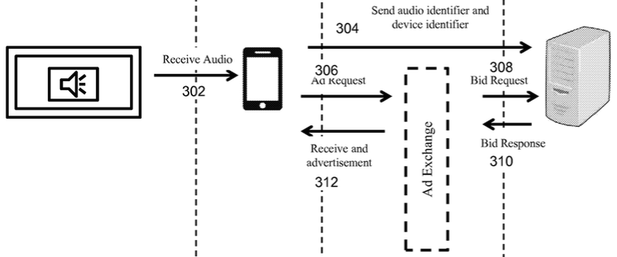 The Vikings held the NFC North lead for only one week, as Green Bay came to Minnesota and got lots of help from Minnesota to take control of the game. While Teddy Bridgewater did just about everything he could (he would have thrown for over 300 yards if Mike Wallace had caught anything thrown his way), the running game never got going and Bridgewater was under pressure for much of the game, absorbing six sacks (second most of the season after the Denver game). A critical Adrian Peterson fumble put the game out of reach in the fourth quarter. One of the deciding factors in the outcome was penalties, particularly ill-timed penalties at critical moments on the guys in purple. The Vikings entered the game as the least-penalized team in the NFL, but you’d never have guessed that watching the first half of play … yellow flags seemed to fly after every other play, uniformly against the Vikings.
The Vikings held the NFC North lead for only one week, as Green Bay came to Minnesota and got lots of help from Minnesota to take control of the game. While Teddy Bridgewater did just about everything he could (he would have thrown for over 300 yards if Mike Wallace had caught anything thrown his way), the running game never got going and Bridgewater was under pressure for much of the game, absorbing six sacks (second most of the season after the Denver game). A critical Adrian Peterson fumble put the game out of reach in the fourth quarter. One of the deciding factors in the outcome was penalties, particularly ill-timed penalties at critical moments on the guys in purple. The Vikings entered the game as the least-penalized team in the NFL, but you’d never have guessed that watching the first half of play … yellow flags seemed to fly after every other play, uniformly against the Vikings.
November 23, 2015
Vikings struggle against Green Bay, give up NFC North lead
Minimization of Total Industry Costs of Production
Published on 18 Mar 2015
This section connects several ideas covered in previous videos about the price system and profit maximization. In this video, we begin to understand two basic functions of the Invisible Hand. In competitive markets, the market price (with the help of the Invisible Hand) balances production across firms so that total industry costs are minimized. Competitive markets also connect different industries. By balancing production, the Invisible Hand of the market ensures that the total value of production is maximized across different industries. We’ll use the example of minimizing total costs of corn production, and demonstrate our findings through several charts.
Do you have a smartphone? Do you watch TV? You might want to reconsider that combination
At The Register, Iain Thomson explains a new sneaky way for unscrupulous companies to snag your personal data without your knowledge or consent:
Earlier this week the Center for Democracy and Technology (CDT) warned that an Indian firm called SilverPush has technology that allows adverts to ping inaudible commands to smartphones and tablets.
Now someone has reverse-engineered the code and published it for everyone to check.
SilverPush’s software kit can be baked into apps, and is designed to pick up near-ultrasonic sounds embedded in, say, a TV, radio or web browser advert. These signals, in the range of 18kHz to 19.95kHz, are too high pitched for most humans to hear, but can be decoded by software.
An application that uses SilverPush’s code can pick up these messages from the phone or tablet’s builtin microphone, and be directed to send information such as the handheld’s IMEI number, location, operating system version, and potentially the identity of the owner, to the application’s backend servers.
Imagine sitting in front of the telly with your smartphone nearby. An advert comes on during the show you’re watching, and it has a SilverPush ultrasonic message embedded in it. This is picked up by an app on your mobile, which pings a media network with information about you, and could even display followup ads and links on your handheld.
“This kind of technology is fundamentally surreptitious in that it doesn’t require consent; if it did require it then the number of users would drop,” Joe Hall, chief technologist at CDT told The Register on Thursday. “It lacks the ability to have consumers say that they don’t want this and not be associated by the software.”
Hall pointed out that very few of the applications that include the SilverPush SDK tell users about it, so there was no informed consent. This makes such software technically illegal in Europe and possibly in the US.
QotD: Bashing the drill square … it’s not actually useless
In September 1941, William McNeill was drafted in the US Army. He spent several months in basic training, which consisted mostly of marching around the drill field in close formation with a few dozen other men. At first McNeill thought the marching was just a way to pass the time, because his base had no weapons with which to train. But after a few weeks, when his unit began to synchronize well, he began to experience an altered state of consciousness. “Words are inadequate to describe the emotion aroused by the prolonged movement in unison that drilling involved. A sense of pervasive well-being is what I recall; more specifically, a strange sense of personal enlargement; a sort of swelling out, becoming bigger than life, thanks to participation in collective ritual.” McNeill fought in World War II and later became a distinguished historian. His research led him to the conclusion that the key innovation of Greek, Roman, and later European armies was the sort of synchronous drilling and marching the army had forced him to do years before.
Jonathan Haidt, quoted by Scott Alexander in “List Of The Passages I Highlighted In My Copy Of Jonathan Haidt’s The Righteous Mind“, Slate Star Codex, 2014-06-12.




